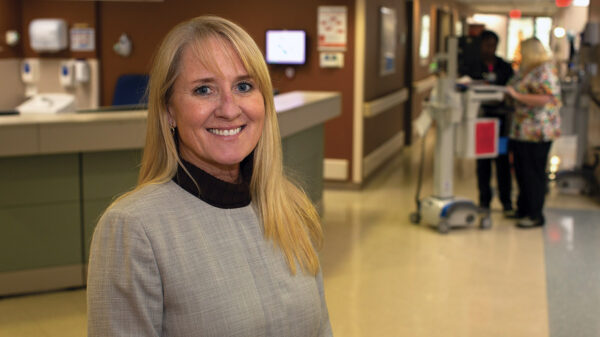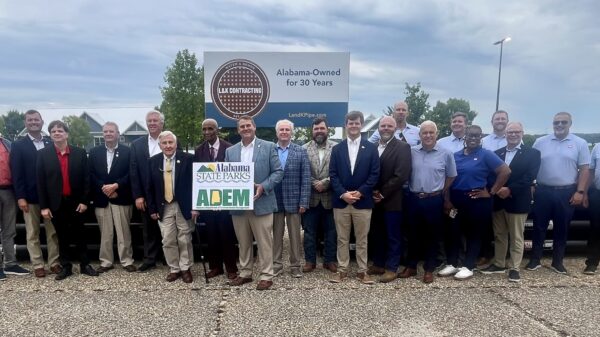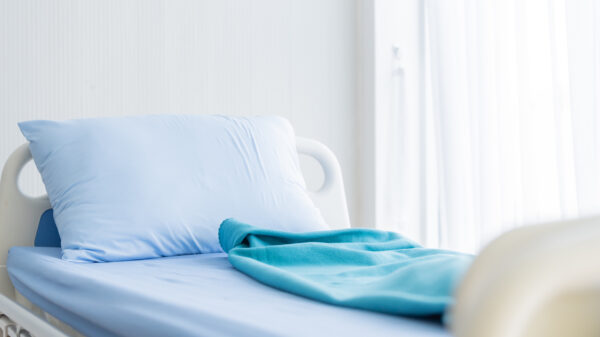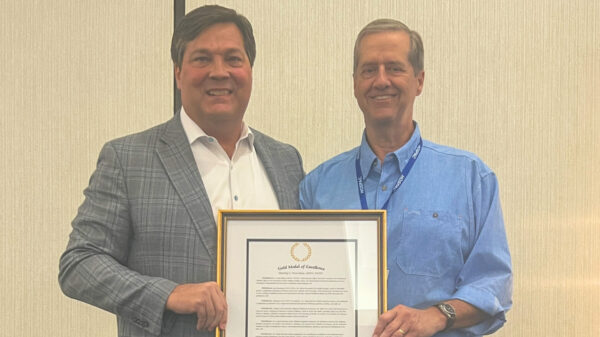House and Senate committees each approved a bill Thursday designed to appropriate Alabama’s remaining American Rescue Plan Act funds.
The bill would distribute about $772 million in federal funding primarily towards broadband expansion, water and sewer improvements and health care.
Broadband
A total of $277 million would go toward expanding broadband, with $85 million available immediately and another $191 million funded through capital projects.
The total estimated cost of bringing broadband access statewide is $4.6 billion.
“This will be a very good start putting a dent in that number, but we still have a lot of work to do,” Maureen Neighbors, ADECA energy division chief, told a joint House and Senate committee Wednesday.
Water and sewer
Water and sewer improvements make up $225 million of the appropriations with up to $120 million designated for high-priority or emergency projects previously identified under the Clean Water State Revolving Fund or the Drinking Water State Revolving Fund. Another $100 million is set out for matching grants for water or sewer infrastructure projects.
“The driving force in the distribution of these funds will be a needs-based approach,” said Lance LeFleur, director of the Alabama Department of Environmental Management. “In order to do that, we will be going through a standard needs survey done by the department.”
Currently, the funds are required to be spent by Dec. 31, 2026. LeFleur said that may not be enough time given the circumstances.
“There’s some question about whether those dates are realistic given the excessive amount of demand that’s out there and the limited amount of supply of both engineering services, the contractors to do the work and even the availability of equipment for motors and pumps, clarifiers and things like that,” LeFleur said. “There are tens of thousands of these systems out there and there’s going to be logjam trying to get these consultants out.”
Health care
Altogether, $146.7 million is allocated toward health care. $80 million would be split between hospitals and nursing homes. The Legislature also appropriated $80 million to the healthcare providers in its most recent special session.
“We’re in the throes of yet another surge and we’re hoping we’re going to have another peak and then decline in the next week to 10 days,” said Danne Howard, deputy director of the Alabama Hospitals Association. “The last $40 million you allocated for the hospitals in the last special session has been distributed and the hospitals are more than appreciative for it.”
That round of money went to tangible expenses such as PPE. The $40 million was not enough to meet claims, Howard said, so the amount was prorated with each hospital getting 70.6 percent of claims submitted.
Howard said she hoped that some of the upcoming funding could be used for personnel.
“The primary expenses of hospitals right now is labor,” Howard said. “In surveying our hospitals, greater than 90 percent have given bonuses, retention pay, picked up the employees’ share of health insurance and additional money on top of overtime for difficult-to-fill shifts. Those are unsustainable moving forward, but it’s what you have to do.”
Alabama Nursing Home Association CEO Brandon Farmer said an even smaller fraction of claims were able to be paid out from the $40 million.
“We had $140 million in claims and we prorated that with 27.73 percent of claims paid,” Farmer said. “That left a balance of just over $100 million of unmet need.”
Farmer said that was after mitigating for other federal assistance include Paycheck Protection Program loans so that the state money was “the last dollar in.”
The bill also includes $30 million targeted at rural hospitals, $20 million for emergency response providers, $36.8 million for assisted living, public health and mental health and $5 million for telemedicine.
Unemployment
In addition to its major three divisions, the bill also includes a $79.5 million appropriation for the Unemployment Compensation Trust Fund.
“More people now are working than they did a year ago, so there’s less of a drawdown from the UI Trust Fund,” said Fitzgerald Washington, secretary of the Alabama Department of Labor. “Our economy has rebounded significantly over a period of time.”
But some additional funds are needed to return the trust fund to near pre-pandemic levels, Washington said. The additional appropriations would shore up the gap.
Incarceration
The bill appropriates $11 million in reimbursement for state inmates that have been held in county jails during the pandemic.
Although this round of ARPA funding has broad support and appears likely to be set, other industries and organizations took the opportunity to plead with the state for support ahead of another expected $1 billion in federal assistance.
Holly McCorkle, executive director for the Alabama Council on Behavioral Healthcare, requested a $100 million investment into the mental health system for capital needs.
“We kept our doors open every day during the pandemic and, honestly, we are struggling,” McCorkle told the committee. “When you think about health care in this round and future rounds, please think of behavioral health care.”
Neah Scott with PEEHIP also pointed to struggles due to the pandemic, requesting $57 million in reimbursement for expenses related to COVID-19. Scott said mandates from the idea administration could cost millions more, with a $73 million shortfall projected for FYE 2024.
Members of the Alabama Restaurant and Hospitality Association also appealed to the lawmakers.
Bob Parker, owner of two Dreamland locations in Montgomery, said the restaurants have barely been able to stay afloat.
“We know we’re not the industry that’s top of mind,” Parker said. “We just hope there’s considerations for us in the future.”
The session will continue Tuesday with voting likely on the bill in both House and Senate.























































